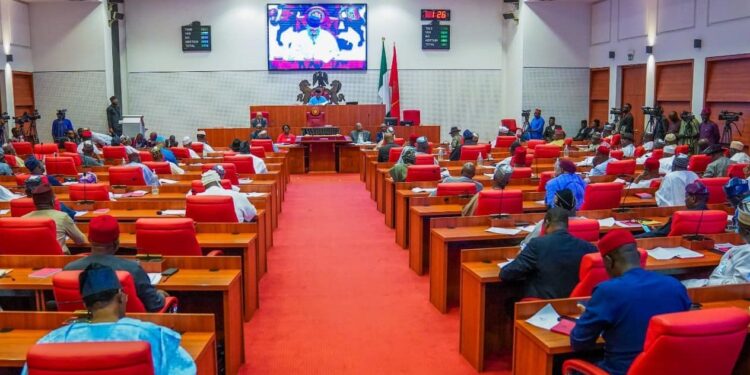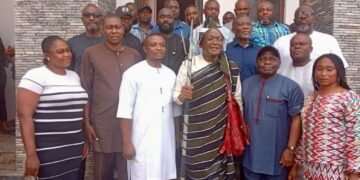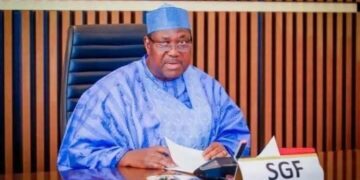The Senate has passed the four tax reform bills for second reading, marking a significant step in their legislative journey. After the bills cleared the Second Reading during Thursday’s plenary, Senate President, Senator Godswill Akpabio, referred them to the Senate Committee on Finance, led by Senator Sani Musa (APC, Niger East), for further legislative work and a report due in six weeks.
Before the debate on the bills, the Senate held a closed-door session from 11:55 am to 12:42 pm. The Senate’s resolution followed a lead debate on the general principles of the bills presented by Senate Leader, Senator Opeyemi Bamidele (APC, Ekiti Central).
Bamidele introduced the following key bills:
- SB 583: A bill to establish the Joint Revenue Board, the Tax Appeal Tribunal, and the Office of the Tax Ombudsman to streamline the coordination and settlement of disputes in Nigeria’s revenue administration.
- SB 584: A bill to repeal the Federal Inland Revenue Service (FIRS) Act, 2007, and establish the Nigeria Revenue Service with authority over assessment, collection, and accounting for federal revenue.
- SB 585: A bill to provide a framework for the assessment and collection of revenue across the Federation, and define the powers and functions of tax authorities at all government levels.
- SB 586: A bill to repeal existing tax laws and consolidate Nigeria’s tax framework under the Nigeria Tax Act, covering income, transactions, and instruments.
In his remarks, Senate President Akpabio emphasized that during the public hearing, experts, governors from the Nigeria Governors Forum (NGF), traditional rulers, and other stakeholders would be invited to provide input. He assured that the Senate would work towards delivering a beneficial outcome for the Nigerian people.
These bills were originally transmitted to the National Assembly by President Tinubu on September 3, following recommendations from the Presidential Committee on Fiscal and Tax Reforms, chaired by Taiwo Oyedele, for a review of the country’s tax laws.
The bills include the Nigeria Tax Bill 2024, which aims to establish a fiscal framework for taxation in the country, and the Tax Administration Bill, which will create a clear legal framework for taxes and reduce disputes. Other bills include the Nigeria Revenue Service Establishment Bill, which will repeal the FIRS Act and create the Nigeria Revenue Service, and the Joint Revenue Board Establishment Bill, which will establish a tax tribunal and ombudsman.
It is also important to note that on the same day both the Senate and the House of Representatives began their recess, the National Economic Council (NEC), chaired by Vice President Kashim Shettima, recommended that the bills be withdrawn for further consultation. However, on October 31, President Tinubu responded by affirming that the bills should continue through the legislative process, ensuring that Nigerians have the opportunity to engage with the details of the bills, especially during the public hearing phase.






